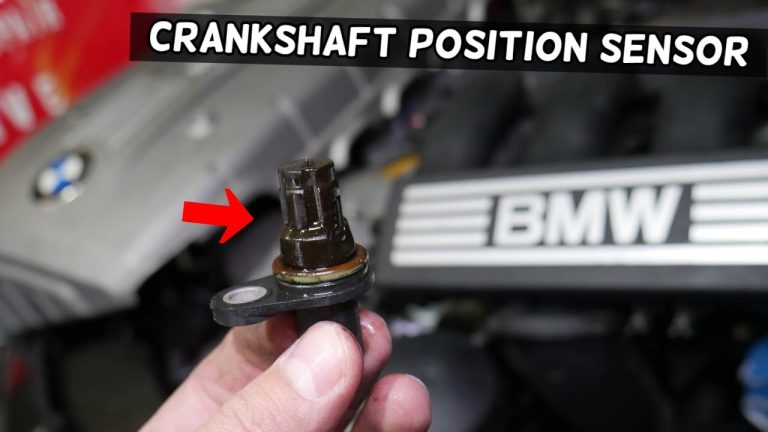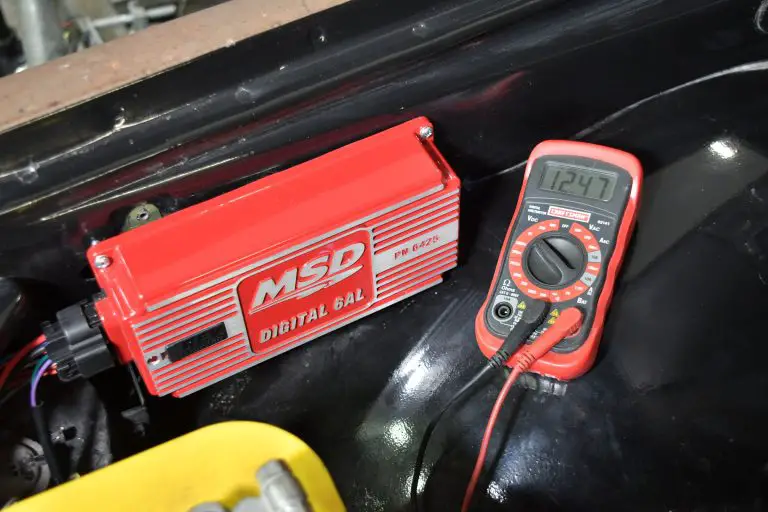Baffled by Buzzing? Why Your Car Makes Noise After You Shut It Off (It’s Not Aliens…Probably)
You turn the key, the engine sighs to a stop, and you settle in for a moment of peace. But wait! An unexpected buzzing disrupts the silence, emanating from your car like a mechanical afterthought. Is it a ghost in the machine, a malfunction, or something entirely normal?
Believe it or not, car noises, even those that occur after you’ve turned off the engine, can be a valuable diagnostic tool. Just like the human body, a healthy car operates with a symphony of smooth purrs and gentle clicks. However, new or unusual sounds, like a persistent buzz, can indicate that something might be amiss.
Understanding these post-shutoff noises is crucial for maintaining a healthy car. Cars aren’t like light switches – some systems might remain operational for a short while even after you turn off the engine. This can be perfectly normal, but a concerning buzz could also point to a potential issue. In this article, we’ll delve into the reasons why your car might be buzzing after it’s been turned off, helping you decipher the message behind the mystery noise.
Understanding Post-Shutoff Car Sounds: Decoding the Buzzing Symphony
The unexpected buzz emanating from your parked car can be a nerve-wracking experience. But before you panic, take a deep breath. The first step is understanding the type of buzzing you’re hearing.
Not all Buzzes are Created Equal:
- Faint Hum: A subtle, low-pitched hum after shut off might be entirely normal. This could be the sound of the car’s computer system going into sleep mode or the residual whir of the ventilation fan slowing down.
- Loud Electrical Whine: A persistent, high-pitched whine is more likely to indicate an electrical issue. This could be a sign of a component not shutting down properly or a malfunctioning electrical part.
Location, Location, Location:
The origin of the buzz can also offer clues:
- Engine Bay Buzzing: A buzzing sound coming from under the hood could be related to the cooling fan running after shut off, the EVAP system performing a self-check, or a malfunctioning component like a loose fan belt.
- Dashboard Buzzing: A buzzing noise from the cabin might be caused by aftermarket electronics that haven’t fully powered down or a malfunctioning component within the dashboard, such as the heater blower motor.
The Science Behind the Buzz:
Your car’s electrical system is a complex network powered by the battery. Even after you turn off the engine, the battery can still hold residual power. Certain car systems might be designed to tap into this residual power for a short while after shut off to complete tasks or cool down. For example, the cooling fan might continue to run to prevent overheating, or the EVAP system might perform a self-check to ensure proper fuel vapor control.
However, if a component malfunctions or an aftermarket device doesn’t fully power down, it can draw on this residual power and create a noticeable buzzing sound. By understanding the different types of post-shutoff buzzes and their potential locations, we can move on to identifying the specific culprit behind the unwanted noise.
Potential Causes of Buzzing When Car is Off: Decoding the Electrical Hiccups
The post-shutoff buzz coming from your car can point to a few potential culprits. Let’s examine the common reasons behind this electrical serenade:
- The Self-Checking Crusader: The EVAP System
Your car is an eco-warrior at heart, and the EVAP (Evaporative Emission Control System) is its shield against air pollution. This system helps prevent fuel vapors from escaping into the atmosphere. After you turn off the engine, the EVAP might perform a self-check to ensure everything is sealed properly. This self-check can sometimes create a buzzing sound, especially coming from under the hood near the fuel tank. The good news: This is a normal function and not a cause for concern.
- The Heat Guardian: The Cooling Fan
Imagine a car engine as a hardworking athlete. Just like an athlete needs to cool down after exertion, your car engine needs to regulate its temperature. The cooling fan helps with this task. Sometimes, even after you turn off the engine, the car’s computer might determine the engine is still too hot. In such cases, the cooling fan might continue to run for a short while to bring the temperature down. This can generate a buzzing sound from the front of the engine bay. Again, this is normal behavior and shouldn’t be a cause for concern, especially on hot days.
- The Unruly Aftermarket Add-Ons:
Modern cars are havens for convenience, and we often deck them out with phone chargers, stereos, and other aftermarket electronics. While these gadgets add comfort, they can also be sneaky culprits behind post-shutoff buzzes. Some aftermarket electronics might not fully power down when you turn off the car, causing a faint electrical hum that can drain your battery over time. Be mindful of the electronics you add and prioritize those with proper shut-off mechanisms.
- The Malfunctioning Musician: Electrical Component Issues
Car components are a complex orchestra, and sometimes an instrument can go out of tune. A malfunctioning component like a faulty blower motor for the heater or air conditioning, or a stuck relay (an electrical switch), could create a persistent buzzing sound from the dashboard area. These issues can arise due to normal wear and tear or electrical problems. If you hear a continuous and concerning buzz, it’s best to consult a mechanic to diagnose the problem and prevent further issues.
Diagnosis and Repair: Silencing the Post-Shutoff Symphony
The mysterious buzzing coming from your car might seem like an enigma, but with the help of a mechanic, you can transform it into a solved mystery.
Importance of Professional Diagnosis:
While this article has explored some potential causes of post-shutoff buzzing, a definitive diagnosis requires a professional touch. Mechanics possess the expertise and specialized tools to pinpoint the exact reason behind the unwanted noise. Here’s what a mechanic might do:
- Stethoscopes: Just like a doctor uses a stethoscope to listen to your heart, mechanics can use a similar tool to isolate the source of the buzzing within the engine bay or dashboard.
- Computer Diagnostics: Modern cars are equipped with onboard computers that can store diagnostic trouble codes (DTCs). A mechanic can use a scan tool to access these codes, which might shed light on potential electrical issues contributing to the buzzing.
- Electrical System Tests: Depending on the suspected cause, the mechanic might perform tests on the car’s electrical system, such as measuring voltage or checking for continuity in specific circuits.
Potential Repair Solutions:
Once the mechanic diagnoses the culprit behind the buzzing, they can recommend the most appropriate course of action. Here are some potential solutions:
- EVAP System Inspection: If the EVAP system is suspected to be the source of the buzzing, the mechanic might inspect the system for leaks or loose connections. In most cases, the EVAP system self-check shouldn’t require any repairs, but a quick inspection can provide peace of mind.
- Cooling Fan System Check: If the cooling fan is determined to be the culprit, the mechanic might check the fan motor, temperature sensor, or related wiring for any malfunctions. In some cases, a simple cleaning of the fan blades might be sufficient.
- Aftermarket Electronics Taming: If the buzzing is traced back to an aftermarket electronic device, the mechanic can help you identify the culprit and recommend solutions like replacing the device with one that has a proper shut-off function.
- Electrical Component Repair or Replacement: For malfunctions in electrical components like the blower motor or relays, the mechanic can assess the damage and recommend repair or replacement of the faulty part.
Remember, these are just some examples, and the specific repairs will depend on the mechanic’s diagnosis. The key takeaway is to prioritize a professional diagnosis to ensure the correct solution is implemented to silence the buzz and keep your car’s electrical system functioning smoothly.
Prevention Tips: Keeping the Buzz Out of Your Post-Shutoff Symphony
Understanding the causes of post-shutoff buzzing empowers you to take preventative measures and keep your car’s electrical symphony harmonious. Here are some tips to keep the buzz at bay:
- Consult Your Owner’s Manual: Your Car’s Secret Weapon
Your car’s owner’s manual is a treasure trove of information, including details about normal post-shutoff sounds specific to your car model. Refer to the manual to familiarize yourself with the sounds your car might make after you turn off the engine, such as the EVAP system self-check or the cooling fan running briefly. Knowing what’s normal can help you differentiate between normal operations and potential issues.
- Minimize the Aftermarket Chorus: Less is More
While aftermarket electronics add convenience, they can also be potential sources of electrical drain and unwanted buzzing. Limit the number of electronic devices you keep plugged into your car’s cigarette lighter or USB ports. If you do use them, prioritize devices with proper automatic shut-off features to prevent them from draining your battery and potentially causing a faint electrical hum after you turn off the engine.
- Silence the Electronics Before Saying Goodnight
Developing a habit of turning off the radio, lights, and other car accessories before shutting off the engine can go a long way in preventing electrical issues. Leaving electronics on can drain your battery and, in some cases, cause them to malfunction, leading to a persistent buzz after you turn off the car. Getting into the routine of powering everything down before shutting off the engine can help prevent these headaches.
By following these preventative measures, you can significantly reduce the risk of encountering a mysterious post-shutoff buzz. Remember, a little preventative maintenance goes a long way in ensuring a healthy and quiet car electrical system. However, if you do hear a concerning buzz, don’t hesitate to schedule a visit with a trusted mechanic for diagnosis and repair. Early detection and attention to unusual noises can help prevent minor problems from snowballing into major ones, keeping your car running smoothly and quietly for miles to come.
People Also Ask:
The unexpected post-shutoff buzz can leave you wondering what to do next. Here are some answers to common questions:
- Should I be worried about my car buzzing after I turn it off?
Not all buzzing noises are cause for alarm. Consult your owner’s manual for information on normal post-shutoff sounds specific to your car model. The manual might mention the EVAP system self-check or cooling fan operation as normal occurrences that can create a buzzing sound. However, if the buzzing is loud, persistent, or coming from an unusual location, it’s best to schedule a visit with a mechanic for diagnosis.
- Is it bad to leave my car running to avoid the buzzing noise?
While it might seem tempting to leave your car running to silence the buzz, this is a bad practice for a few reasons. First, it’s a waste of gas and unnecessary wear and tear on your engine. Second, it doesn’t address the underlying cause of the buzzing, which could be a potential problem that needs attention. Turning off your car is always the recommended course of action.
- How much does it cost to fix a car that buzzes when it’s off?
The cost of fixing a car that buzzes when it’s off depends entirely on the cause of the problem. A simple fix like a loose wire in an aftermarket accessory might be inexpensive. However, if the culprit is a malfunctioning component like a blower motor, the cost could be higher depending on the part and labor required for replacement. The key is early detection and diagnosis. A mechanic can pinpoint the problem and recommend the most cost-effective solution to silence the buzz and keep your car healthy.
Conclusion:
The familiar silence after turning off your car is often a moment of peace. But a mysterious buzzing sound can disrupt this tranquility, leaving you wondering what’s going on under the hood. This article has explored the reasons behind post-shutoff car noises, empowering you to decipher the message behind the buzz.
Understanding these noises is crucial. While some buzzing might be a normal part of your car’s post-shutoff routine, like the EVAP system check or the cooling fan running momentarily, unusual or persistent buzzing can indicate a potential issue. Ignoring these unusual sounds can lead to further problems down the road.
Your car’s owner’s manual is your first line of defense. Consult the manual to understand the normal post-shutoff sounds specific to your car model. This knowledge can help you differentiate between a normal occurrence and a potential problem.
However, if you’re concerned about a persistent or unusual buzzing sound, don’t hesitate to seek professional help. A mechanic can use their expertise and specialized tools to diagnose the exact cause of the buzz and recommend the most appropriate repair solution.
Remember, a healthy car operates like a well-tuned orchestra – each component playing its part in harmony. By understanding post-shutoff car noises and taking preventative measures, you can ensure your car’s electrical symphony remains free from unwanted buzzing, keeping your car running smoothly and quietly for years to come.
So, if your car decides to add an unexpected buzz to its post-shutoff performance, don’t panic! Consult your owner’s manual, consider these preventative tips, and schedule a visit with a trusted mechanic to diagnose and address the issue. With a little knowledge and timely action, you can keep your car’s electrical symphony in perfect harmony.




